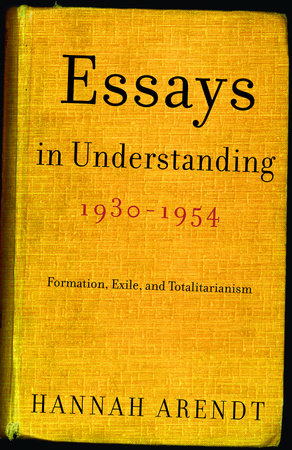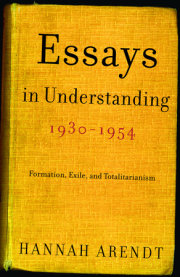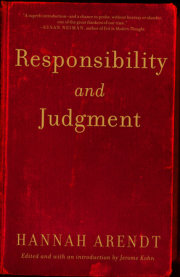On the Emancipation of Women
(1933)
The emancipation of women has to a certain extent become a fact: almost all professions stand open to today's woman, who, socially and politically, enjoys the same rights as man, including the right to vote and the right to run for office. In contrast to these tremendous steps forward, the restrictions imposed on women -especially in marriage, where their right to earn a living and acquire property still depends on their husband's consent-appear to be the "inconsequential" remains of a previous era, no matter how important they may be in individual cases. Looked at closely, however, women's emancipation, guaranteed in principle, has something formal about it. For, although today's women have the same rights legally as men, they are not valued equally by society. Economically, their inequality is reflected in the fact that in many cases they work for a considerably lower wage than men. If they were to work on the same pay scale, they would-in keeping with their social value-simply lose their positions of employment. This would definitely be a reactionary development, since at least for the time being the independence of women is economic independence from men. Only the so-called higher professions, such as medicine and law, are exempt from this paradoxical situation of having partially to renounce equality for the sake of equality. These professions are numerically unimportant, however, even if strictly speaking they are the ones that owe their privileges to the women's movement. The working woman is an economic fact, beside which the ideology of the women's movement marches along.
The average situation of the professional woman is much more complicated. Not only must she accept, despite her legal equality, less remuneration for her work, but also she must continue to do socially and biologically grounded tasks that are incompatible with her new position. In addition to her profession, she must take care of her household and raise her children. Thus a woman's freedom to make her own living seems to imply either a kind of enslavement in her own home or the dissolution of her family.
These "contemporary women's issues" constitute the starting point of A. Riihle-Gerstel's book. She describes the many ways by which women characteristically try to deal with their situations. Proceeding from the correct insight that the biological factor of motherhood is not simply a
factum brutum but can also be modified by social changes, she follows a method that is based on an individual psychology and its global claim that all human achievements, positive and negative, are the result of an original overcompensation. This theory, applied not just to the life history of a given individual, but to an entire class, makes it possible to recognize typical overcompensations and even to discern their models. The description of these models-the housewife, the princess, the demoness: the compassionate, the childish, the capable, the shrewd, the overstressed-is the strongest and most original contribution of this book.
The author sees the position of women in contemporary society as doubly complicated. First, apart from her own social class, as a housewife she is the propertyless employee of a male employer, especially when she lives in a bourgeois or petty bourgeois environment. She is not even a proletarian, not even an independent salaried worker. Second, as a working woman she is almost always a salaried employee. The ambivalence of these conditions becomes especially clear when considered from a political point of view. Women in this situation have not gone forward on political fronts, which are still masculine fronts. And, furthermore, whenever the women's movement crosses a political front it does so only as a unified, undifferentiated whole, which never succeeds in articulating concrete goals (other than humanitarian ones). The vain attempt to found a women's political party reveals the problem of the movement very sharply. The problem is like that of the youth movement, which is a movement only for the sake of youth. A women's movement only for the sake of women is equally abstract.
If women saw their situation clearly, they would, according to Riihle-Gerstel, associate themselves with the mass of the working classes, despite their constant struggle for equality in that realm. This way their political coordination would rest upon the social situation sketched above. But both this political recommendation and the analysis of the social situation are problematic. The typical housewife becomes a propertyless employee only when her marriage breaks up. At that point, for the first time, she can enter the proletarian situation (the author means to say: for the first time, her proletarian situation becomes clear to her). But this analysis does not take into account the reality that, even in the case of divorce, the woman is in most cases still caught up in the social unit to which she belongs. Identifying woman's dependence on a man with that of the employee on the employer proceeds from a definition of the proletarian much too oriented on the individual. The individual should not be the unit of analysis, but, rather, the family, which is either proletarian or bourgeois, regardless of whether in one case a proletarian woman may be treated like a princess and in another case a bourgeois housewife like a slave.
Despite its verbosity, this book is instructive and stimulating. Its conclusion, "The Balance Sheet of Femininity," is presented with a slightly tasteless pathos. Further, the main basis for her study, a research sample which included only 155 subjects, was not large enough to support the sweeping conclusions the author draws. The statistics frequently lack the kind of sociological and geographical spread that would legitimate her generalizations.
Copyright © 2005 by Hannah Arendt. All rights reserved. No part of this excerpt may be reproduced or reprinted without permission in writing from the publisher.













